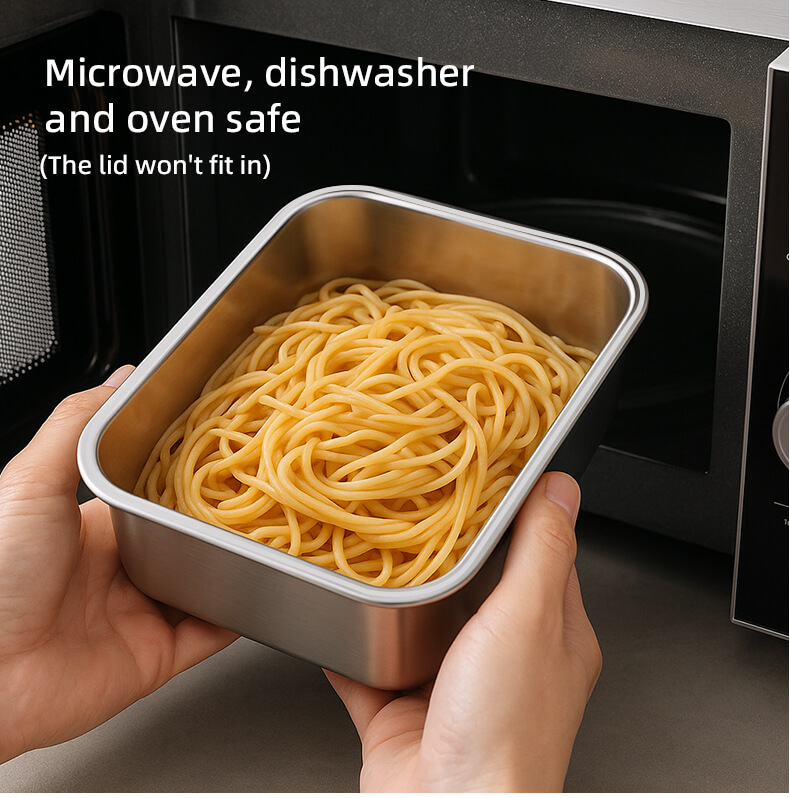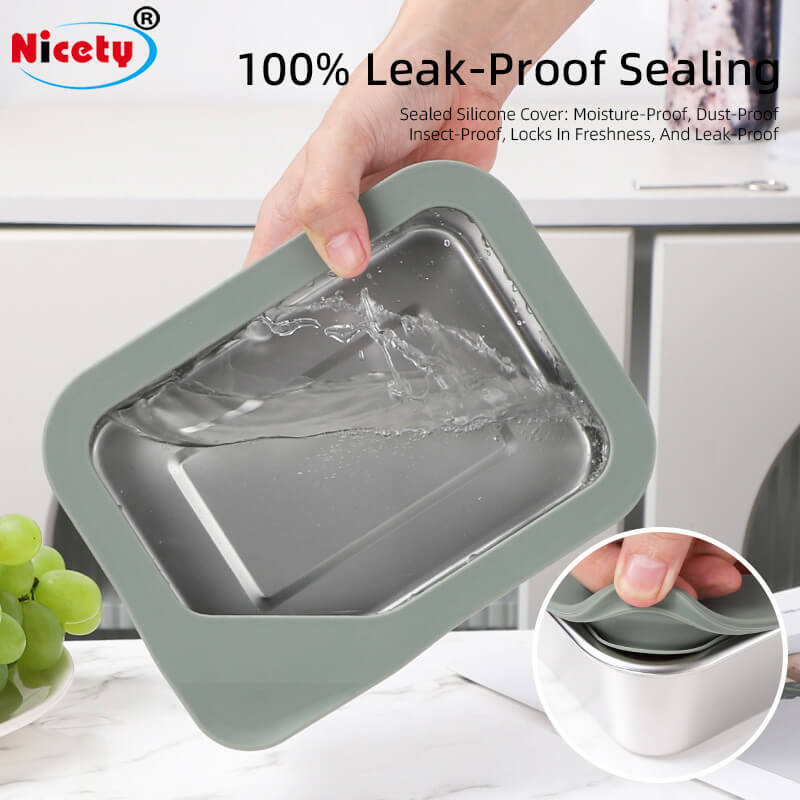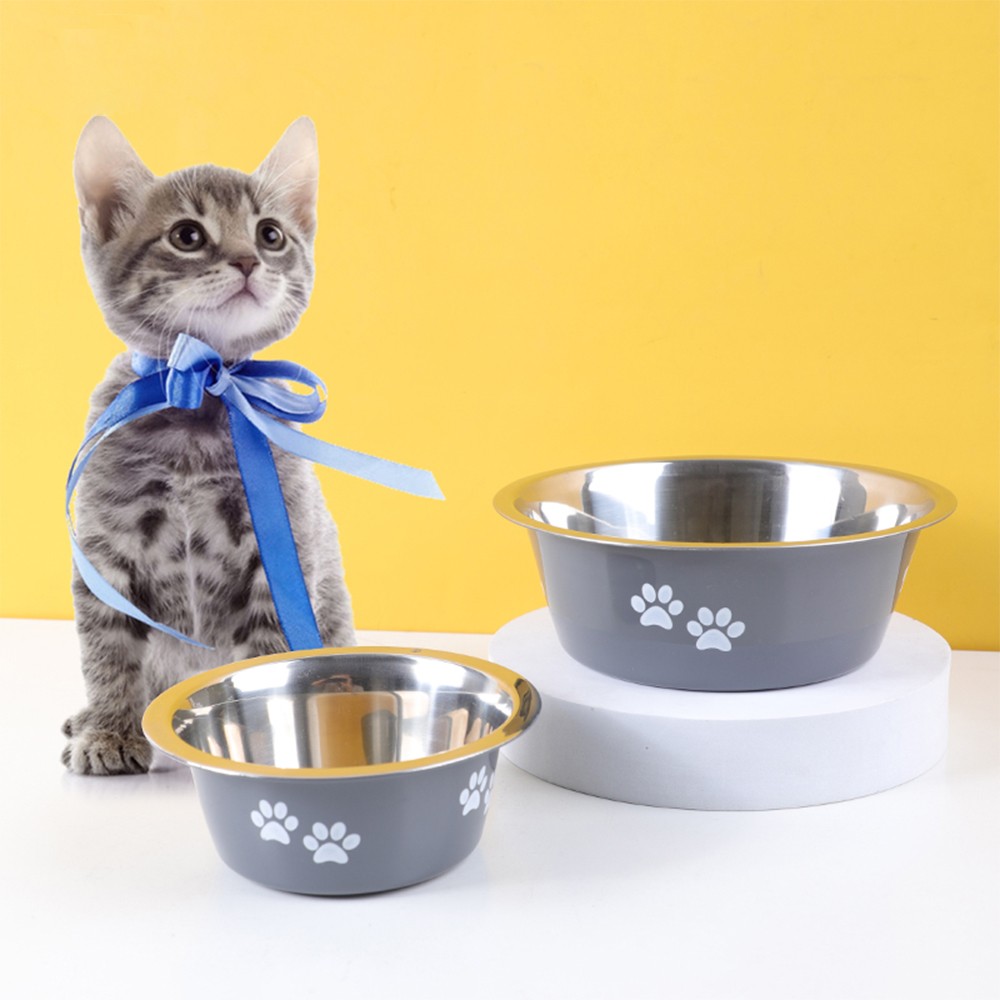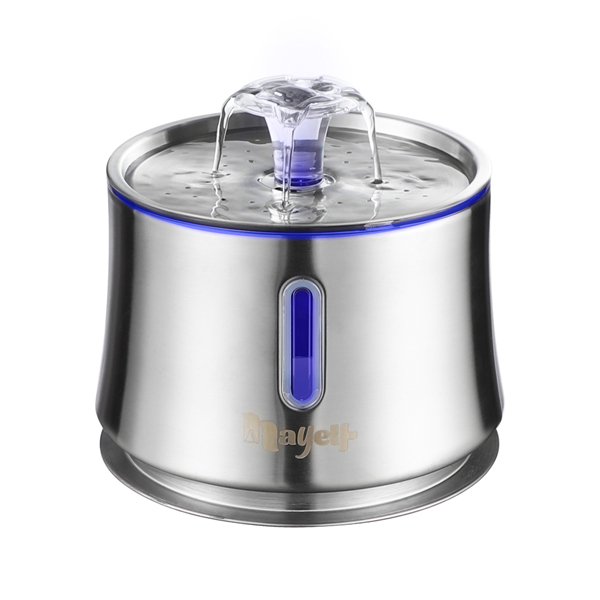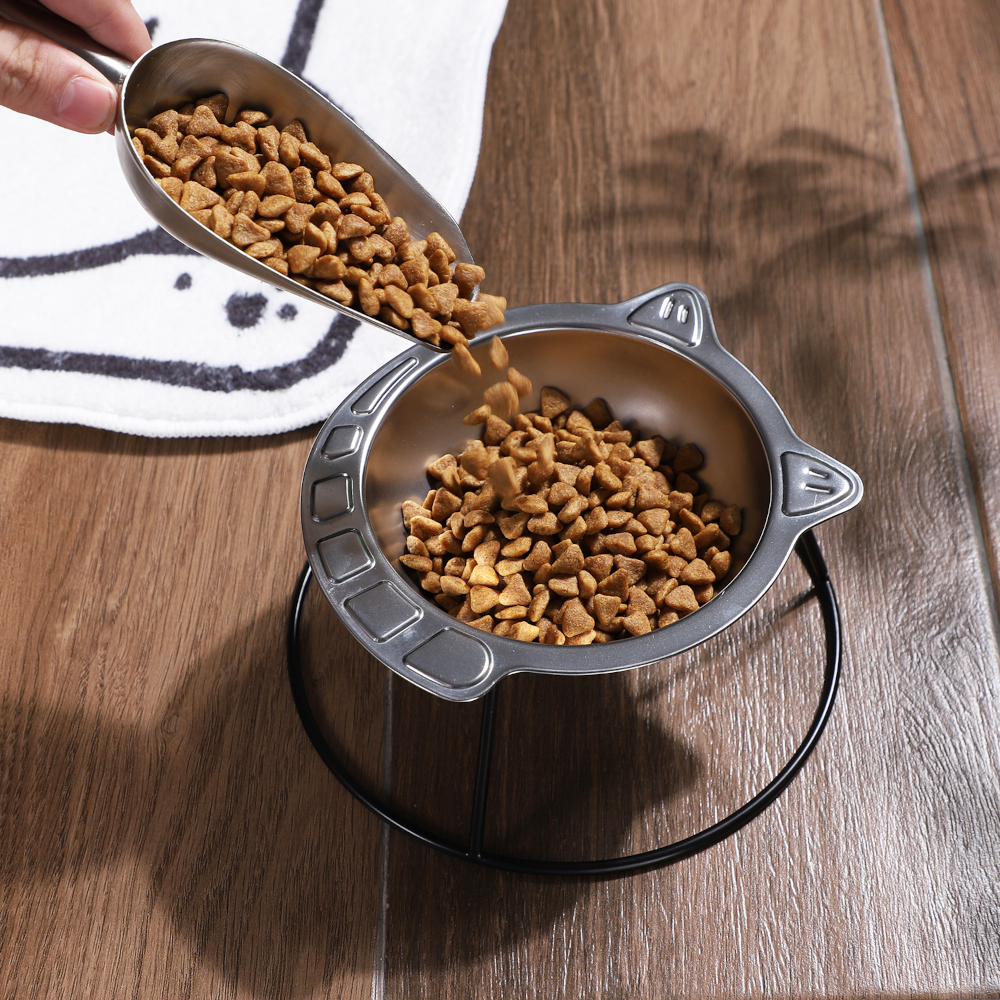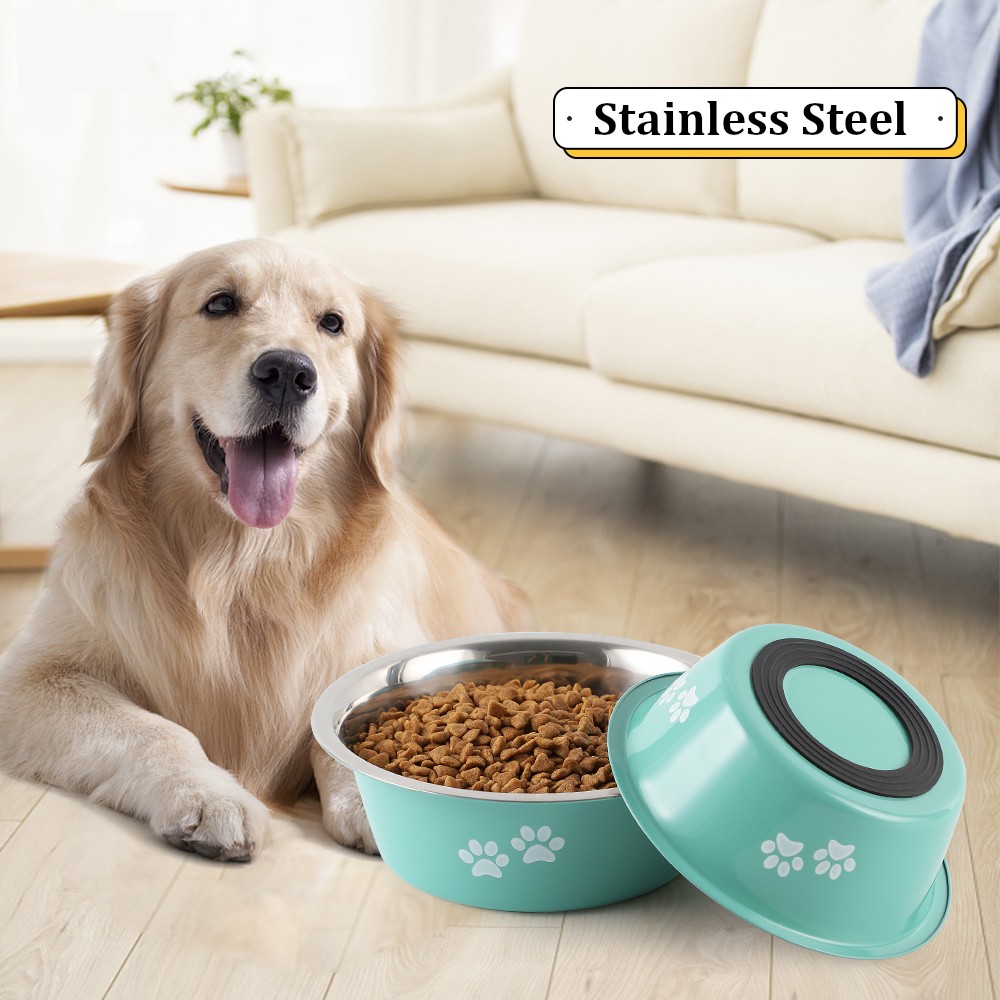Camping is the perfect way to take a break from busy life and reconnect with nature. And when it comes to camping, cooking delicious meals outdoors makes the experience even more enjoyable. Therefore, camping experiences can be made more joyful or stressful depending on the type of cookware materials used.
This article will compare and contrast five of the most common camping cookware materials: stainless steel vs cast iron vs ceramic vs aluminum vs titanium cookware. We will provide an overview of each material and explain how they differ in strength and durability so every camper can make an informed decision when choosing the best cookware for outdoor cooking needs.
Stainless Steel Camping Cookware
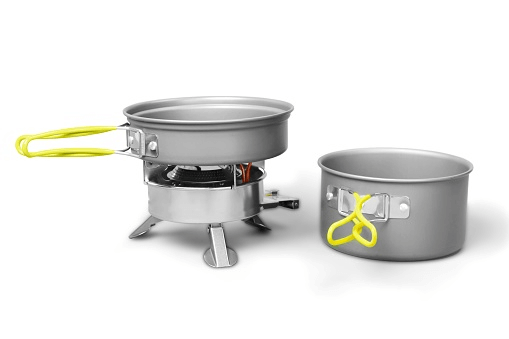
Stainless steel camping pot is a popular choice for camping due to its durability, ease of clean up, and rust resistance. Moreover, this material is non-reactive with acidic ingredients like vinegar and tomatoes, which can influence the flavor of food.
Versatile in nature, stainless steel is suitable for boiling, sauteing, and frying. However, it may be heavier than other materials and more expensive. Plus, stainless steel might not be the best option when cooking dishes like pancakes or eggs that require an even heat distribution.
Titanium Camping Cookware
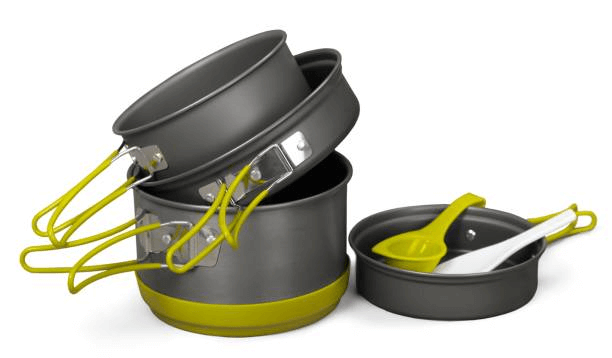
Titanium cooking utensils have become increasingly popular for camping trips due to their lightweight and durability. This material is highly resistant to high temperatures and can withstand rough handling, making it an ideal choice for outdoor cooking.
Like stainless steel, titanium cookware is non-reactive and won’t leach any chemicals into food. However, one potential downside to this type of cookware is that it tends to be more costly than other materials, as well as hot spots on the surface that can cause burning or uneven cooking.
Aluminum Camping Cookware
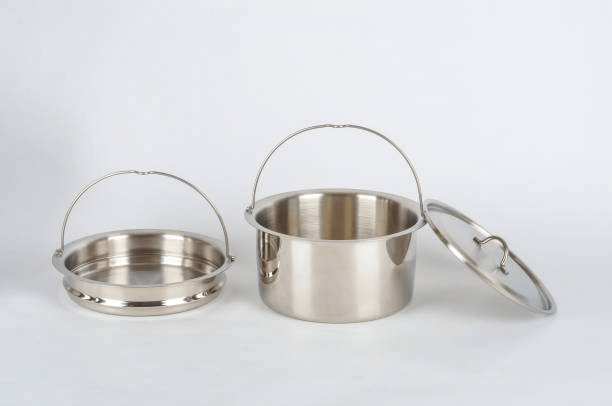
Aluminum camping cookware is an affordable option for those looking for quality cookware to bring on their adventures. It performs well, conducts heat efficiently, and comes in various shapes and sizes. In titanium vs aluminum cookware, aluminum camping cookware is also light in weight.
The drawback to aluminum is its reactivity–it can leach chemicals into food, especially acidic foods like tomatoes or vinegar. To combat this problem, some aluminum camping cookware sets come with a nonstick coating to increase the safety of the meals and make cleaning easier.
Hard Anodized Aluminum Camping Cookware
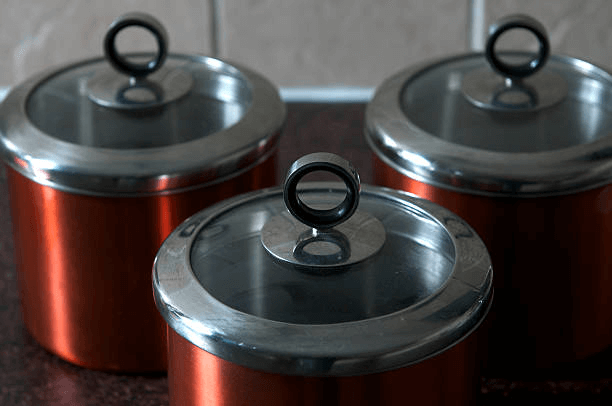
Hard anodized aluminum camping cookware offers a wide range of benefits over traditional aluminum cookware while being more reliable than other nonstick cookware on the market. This type of cookware is more scratch-resistant and non-reactive, meaning it is much easier to clean and prevents food from sticking to its surface.
Though this type of cookware may cost more upfront than traditional aluminum options, it can save money due to its increased durability and reliability. It should be noted that between hard anodized aluminum vs titanium cookware, hard anodized aluminum camping cookware is also prone to hot spots.
Cast Iron Camping Cookware
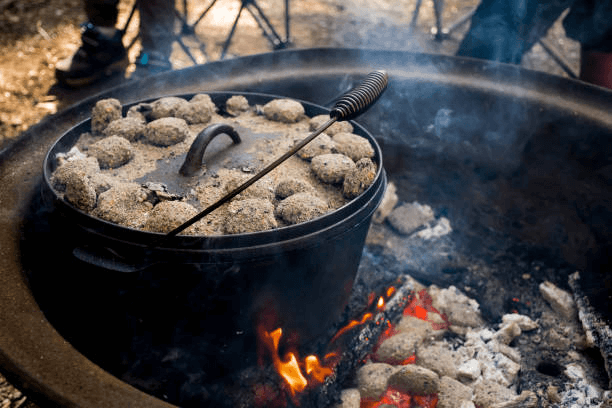
Cast iron camping cookware is an excellent choice for those looking to cook outdoors with an open flame or camp stove. This material is always a popular choice due to its durability, non-reactivity, and ability to withstand high temperatures. Furthermore, cast iron camping cookware is known for retaining heat very well.
Unfortunately, some drawbacks should be taken into consideration when selecting cast iron camping cookware. It can be quite heavy, which may not be better for long-distance hikes or backpacking trips. Additionally, cast iron requires regular seasoning and oiling to keep it rust-free and nonstick.
Ceramic Camp Cookware
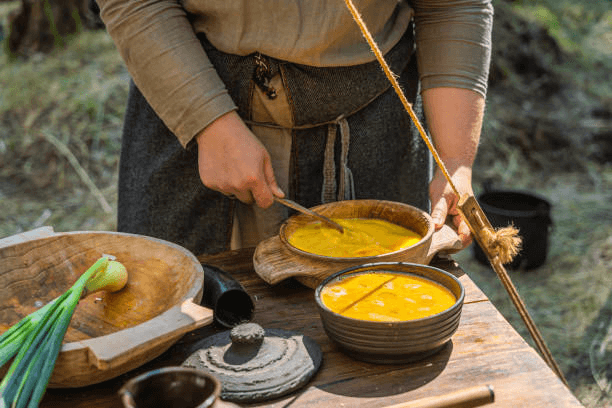
Campers are turning to ceramic cookware for outdoor cooking due to its attractiveness, non-reactive nature, and ease of cleaning. It has a smooth, hard surface that’s scratch and stain resistant and nonstick. Moreover, myriad colors and designs are available to fit any campsite decor. It is compatible with various stove types, including electric, gas, or even the ever-popular ceramic stovetops. It can also work in baking or roasting applications when in an oven.
Despite its advantages, ceramic cookware has some drawbacks; it could be more resilient to drops or damage, unlike metal counterparts which could lead to chipping or cracking if handled poorly. Ceramic cookware likewise doesn’t stand up well against very high temps either – meaning it’s unable to handle high-temperature searing capacities.
Nonstick Coatings (available on some metal cookware)
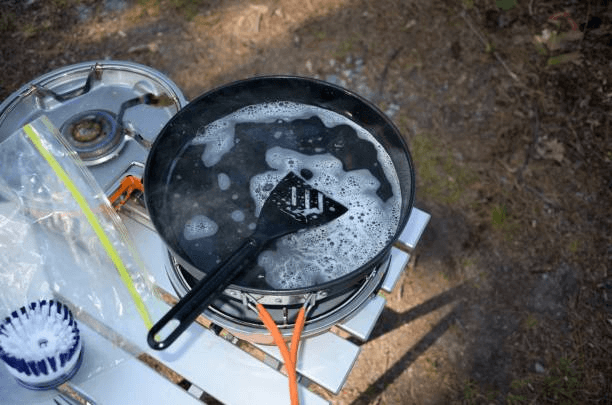
Nonstick coatings are a coating type popular among campers and cooking enthusiasts alike. Made from polytetrafluoroethylene (PTFE), commonly known as Teflon, nonstick coatings help prevent food from sticking to the surface, making it easier to prepare dishes like omelets, pancakes, and grilled sandwiches with less oil or butter.
However, if not cleaned or stored properly, these coatings can become scratched or peel away, exposing toxins that can be harmful when exposed to high heat. Always follow the manufacturer’s instructions for cleaning and heating the tool to avoid these potential risks.
Differences Between Stainless Steel, Titanium, Aluminum, Cast Iron And Ceramic Camping Cookware
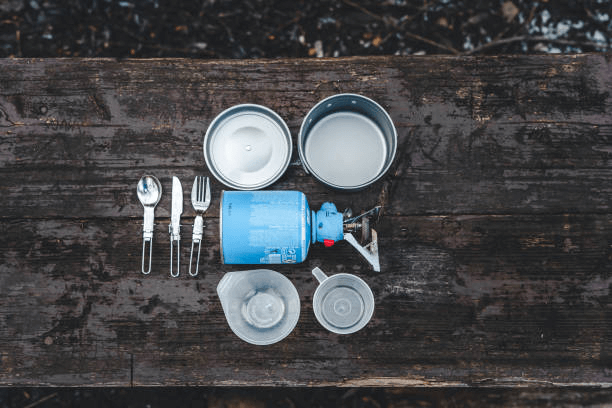
Regarding camping cookware, there are several key differences between stainless steel, titanium, aluminum, cast iron, and ceramic.
- Durability:
Stainless steel and titanium offer superior durability, while aluminum and ceramics may be prone to scratches or cracks if not handled carefully.
- Heat:
Titanium, aluminum, and ceramic heat up quickly but require preheating with stainless steel or cast iron. Nothing beats cast iron, while titanium and aluminum have quick heating/cooling properties for heat retention capability.
In comparison, stainless steel vs aluminum cookware, aluminum cookware has a high thermal conductivity, allowing it to heat up quickly and evenly over the area of the cookware. On the other hand, stainless steel has lower thermal conductivity which can create hot spots or uneven cooking if not properly managed.
- Reactivity:
Regarding reactivity with acidic or alkaline foods, stainless steel, and ceramic are non-reactive, while aluminum and cast iron may cause unwanted reactions which can affect taste or appearance.
- Maintenance:
Itvaries among materials. stainless steel and ceramic are easiest to clean, whereas cast iron requires more effort for seasoning/rust prevention.
- Cost:
When comparing the cost of materials for titanium vs aluminum camping cookware sets, aluminum is the most affordable type, followed by ceramic. In contrast, titanium is the most expensive among these five materials, with stainless steel falling between those two price points.
- Weight:
Regarding weight, the difference between titanium and stainless steel cookware is that titanium is the lightest material, while stainless steel and cast iron are the heaviest.
- Aesthetic appeal:
For aesthetic appeal (such as colors and designs), ceramic cookware stands out from other materials for its easy maintenance and nonstick surface capability compared to others requiring additional coating/seasoning for similar results.
How to Choose the Material for Camping Cookware
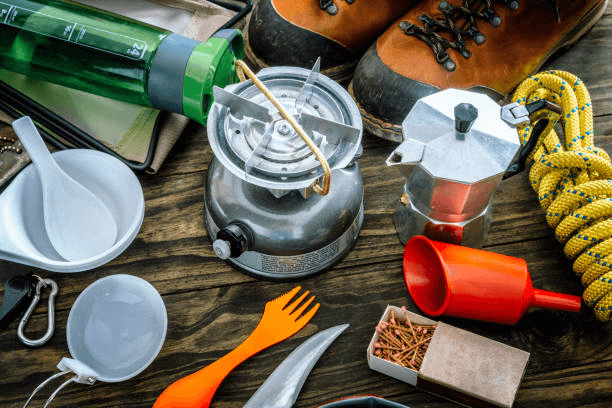
It’s essential to select the proper material when selecting the best camp cook set to ensure a safe and enjoyable outdoor experience. Here are some points to take into account when making this decision:
- Weight: If backpacking or hiking to the camping site is part of the plan, consider that lightweight cookware should take priority. Titanium and aluminum are the lightest metals available and may be optimal for such trips.
- Durability: The cookware’s life span should be considered if multiple camping trips are expected. Cast iron and stainless steel show more resilience against wear, whereas ceramic may chip or crack from mishandling or a drop.
- Cooking Performance: What type of cooking a camper intends to do during camping will also affect their choice. Stainless steel and titanium heat up quickly, making them suitable for searing and intense cooking. Cast iron is perfect for slow cooking; aluminum warms up quickly, so it’s ideal for fast cooking, while ceramic excels in gentle methods like simmering sauces.
- Reactivity: Certain materials interact with acidic/alkaline based foods and thus should be avoided by people who eat such dishes often during camp outings. These are cast iron and aluminum cookware that could react with acidic/alkaline items, so opt instead to use non-reactive material such as stainless steel or ceramic when necessary.
- Maintenance: Cleanliness calls! For example, stainless steel, titanium, & ceramic cookware require less maintenance. At the same time, cast iron needs seasoning to prevent rusting though it can still succumb to this process if not looked after properly.
- Versatility: Some materials lend themselves better than others regarding flexibility & versatility. Stainless steel & titanium rank highest due to their outstanding performance when used in different types of cooking. Conversely, cast iron & ceramic perform best only when doing a specific task.
- Appearance: Consider how the cookware looks before buying it, especially if campers plan to use it for shorter or car camping trips. Ceramics offer great aesthetic appeal because buyers can choose various colors and styles.
- Cost: Consider the budget when selecting the right material for the cookware. Aluminum and ceramic are usually more affordable than titanium.
Contact Nicety to Get Camping Cookware with Best Material

Nicety is the world leading custom cookware manufacturers to ensure the campers’ trip succeeds. Our wide selection of materials includes stainless steel and titanium– perfect for your customer’s situation on the excursion. Nicety is especially well-known for its lightweight and durable stainless steel and titanium camping cookware while remaining easy to clean.
Our team at Nicety has experience choosing the best materials and will be able to determine what works best for you based on your specific requirements. And if your business needs a lot of camping cookware items to equip an entire group or stock up ahead of time, we got your back with a minimum order quantity of 24 sets! For more information about our selection of cooking equipment, don’t hesitate to contact us today.

